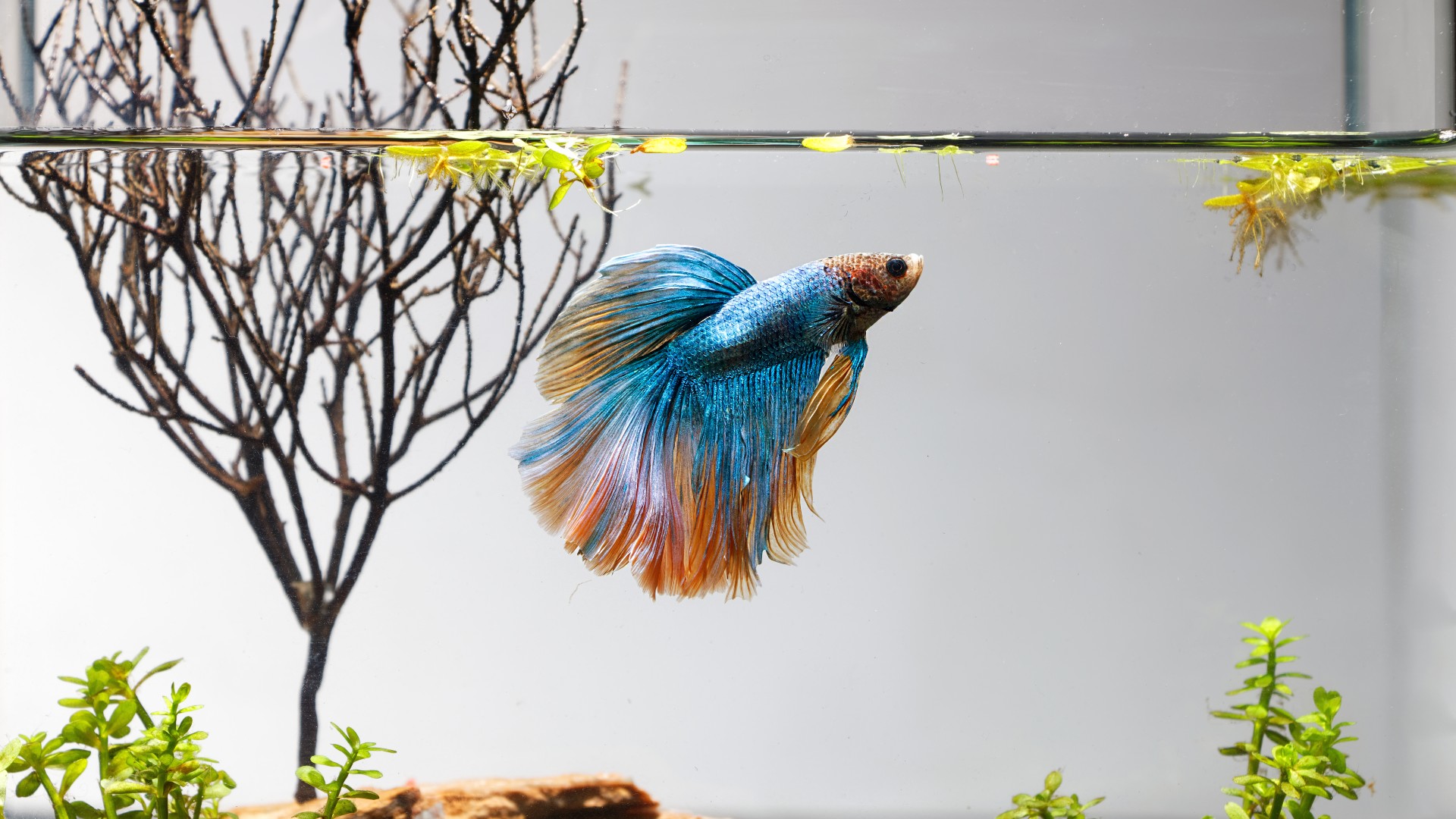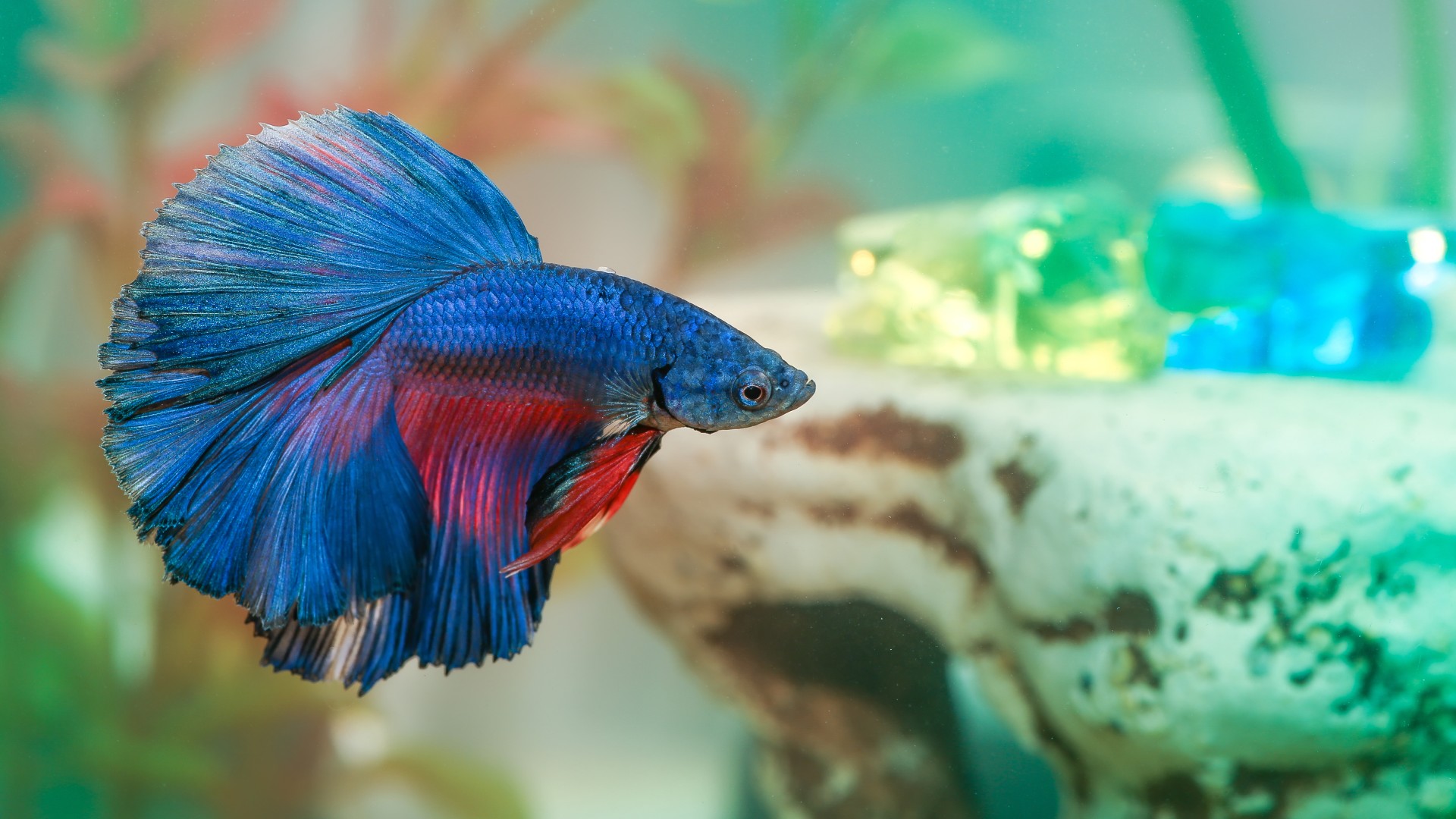Do betta fish get lonely? How to prevent boredom
We answer the question 'do betta fish get lonely?' and explore whether these solitary creatures can thrive in community tanks

Do betta fish get lonely? It’s a question you may find yourself pondering as you watch your bright and vibrant Siamese fighting fish swim solo around their aquatic home.
While nobody can say for certain whether betta fish struggle with loneliness, the general consensus is that because these little creatures tend to be quite aggressive both towards their own kind and other fish, it’s highly likely that they prefer solitary life.
That’s not to say that betta fish don’t get bored, stressed, or depressed, however, like all fish, they require plenty of stimulation by way of a spacious fish tank and a selection of tank accessories to fill it with to ensure they thrive mentally and physically.
It’s worth noting that while it’s believed that betta fish do have a strong tendency towards enjoying their own company, that’s not to say that all betta fish like being alone. Just like humans and other pets, each betta fish has their own temperament, with some enjoying living with non-threatening species.
Below, we reveal everything you need to know about these colorful tropical fish and loneliness, including whether they can co-exist peacefully with other fish and how to make sure all your finned friends stay happy, healthy and safe if you decide to pair them up.
Do betta fish get lonely?
Betta fish are well known for being highly territorial and their aggressive natures mean they will often fight each other to the death when paired together. For that reason, bettas are generally considered solitary fish who prefer being on their own.
While it’s believed they don’t suffer from loneliness, what bettas can struggle with just like any other fish is sadness and depression that is often brought on by boredom. Because of that, it’s just as important with bettas, as with any other fish, to provide them with plenty of stimulation.
Get the best advice, tips and top tech for your beloved Pets
Once you’ve purchased an appropriate fish tank, be sure to also invest in a good array of accessories to go in it, including plants, hiding places, mirrors, toys and other decorations. All of these are known to reduce stress and provide the mental and physical enrichment your betta fish needs to thrive.

Do betta fish prefer being alone?
A betta’s nature means that most of these fish are probably quite happy being alone, but because they each have their own unique temperament, it has been noted that some betta fish actually thrive in community tanks - as long as they’re paired with appropriate companions.
The one exception to this is male betta fish, who should under no circumstances be paired together. They are extremely territorial and will quickly fight each other to the death if they feel their environment is under threat.
Female betta fish are more likely to cohabitate peacefully, so while you will still need to monitor them for signs of aggression, it’s generally considered safe to put groups of females together.
If you’re looking to provide your betta with some company, your best bet is to put them with species they find non-threatening. Think mollies, snails, shrimp, and bottom feeders, all of whom won’t clash with your betta and will likely enhance their quality of life by making them feel happier and more content.
Keeping bettas with other fish
As we’ve seen, although betta fish are well known for being solitary and are unlikely to struggle too much with loneliness, if your finned friend has a more social nature and you do decide to keep them in a community tank, there are a few things worth bearing in mind:
- Make sure the tank is big enough: While small fish tanks are fine for a single betta, you will need something more substantial if you’re deciding to house them alongside other species. Choose a fish tank that has plenty of space for all your friends to spread out comfortably in.
- Provide hiding spaces: Your betta (and their friends) will feel a lot safer in a community tank if they have hiding places that they can retreat to when they’re not swimming around in the open.
- Monitor the tank: It’s vital that you keep a close eye on your community tank to ensure everyone is safe and happy. When introducing any new species to your betta, monitor them closely for signs of aggression. If you notice any territorial or threatening behavior, separate your finned friends - either with a tank divider or by placing them in completely different habitats.
- Choose your betta’s tank mates carefully: Once again, avoid putting male betta fish together and you’ll also want to avoid any other fish that have long tails and bright colors. Because betta fish like to occupy the top part of the tank, stick to species that like to live on the bottom as this will avoid any clashes occurring between the two.
With a little careful planning and a healthy dose of vigilance, it’s possible for the usually solitary betta to not just survive life in a community tank but to thrive.

Kathryn is a freelance writer who has been a member of the PetsRadar family since it launched in 2020. Highly experienced in her field, she's driven by a desire to provide pet parents with accurate, timely, and informative content that enables them to provide their fur friends with everything they need to thrive.
Kathryn works closely with vets and trainers to ensure all articles offer the most up-to-date information across a range of pet-related fields, from insights into health and behavior issues to tips on products and training.
When she’s not busy crafting the perfect sentence for her features, buying guides and news pieces, she can be found hanging out with her family (which includes one super sassy cat and a kitten), drinking copious amounts of Jasmine tea and reading all the books.
She has written for a range of publications, including Fit&Well, Top Ten Reviews, LiveScience, Goodto, and Product Hunt.
